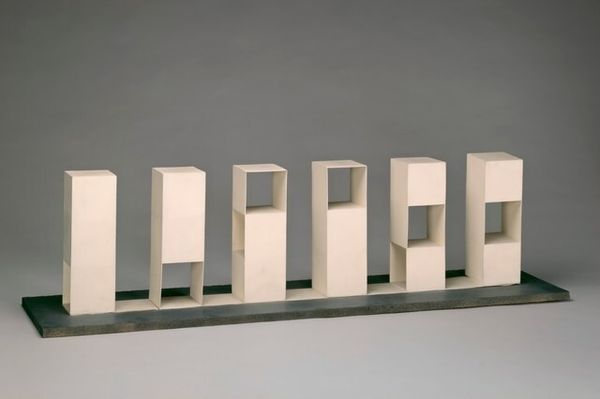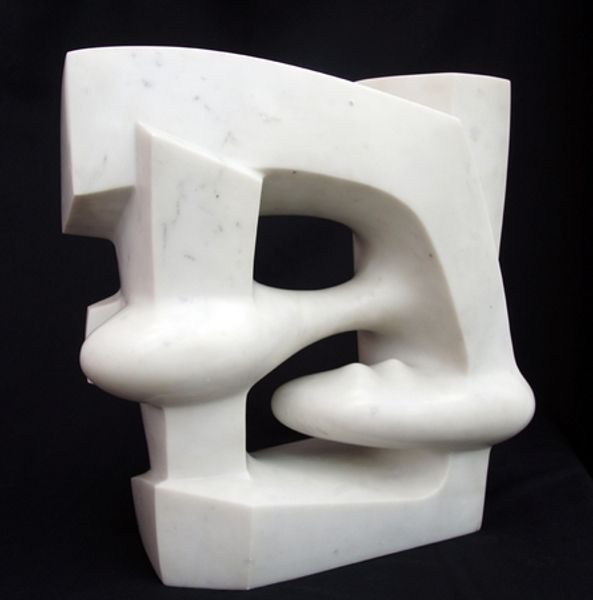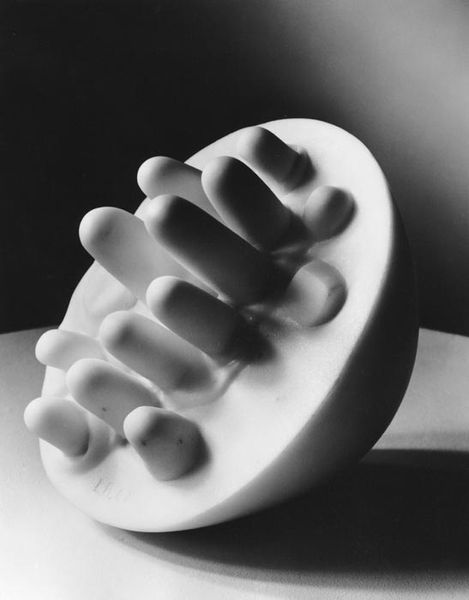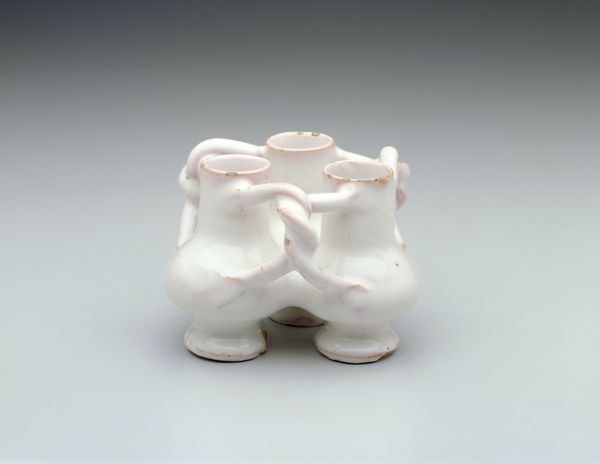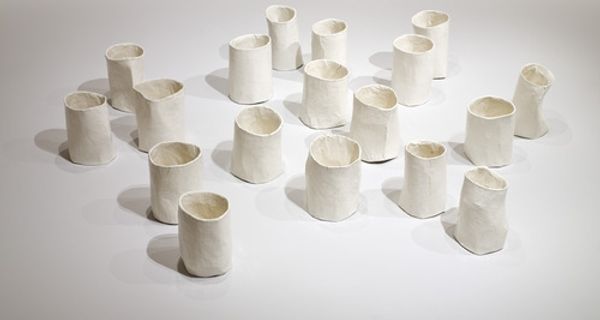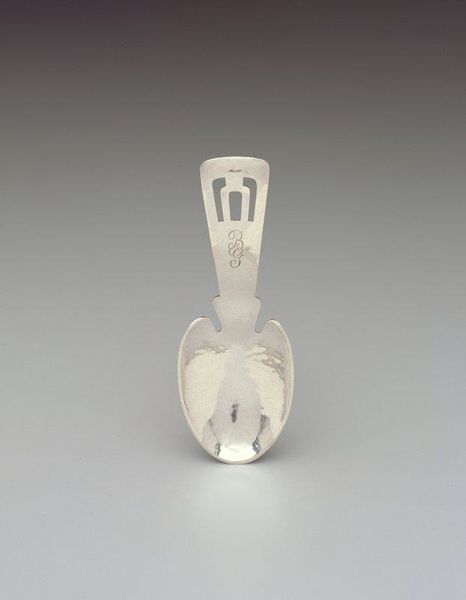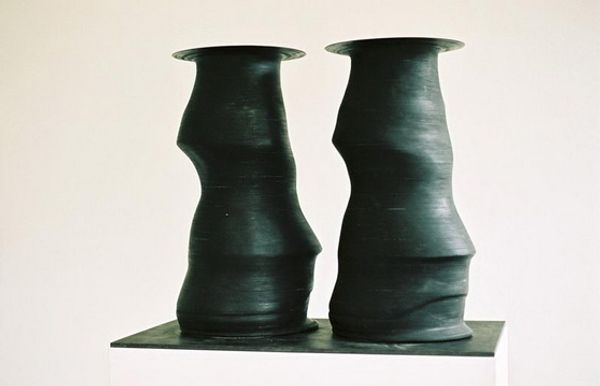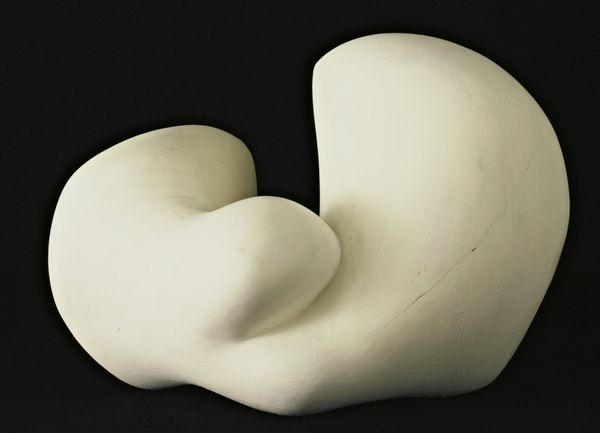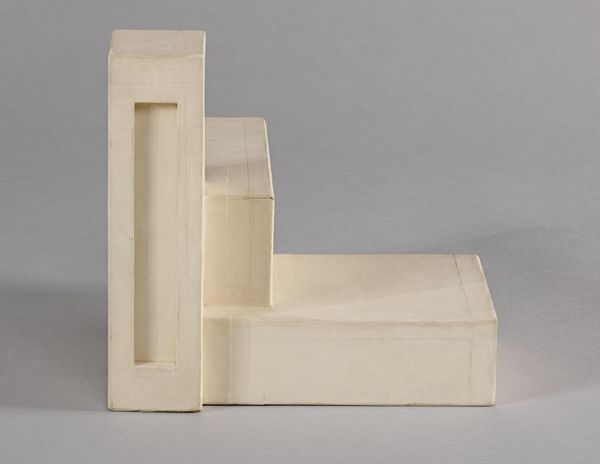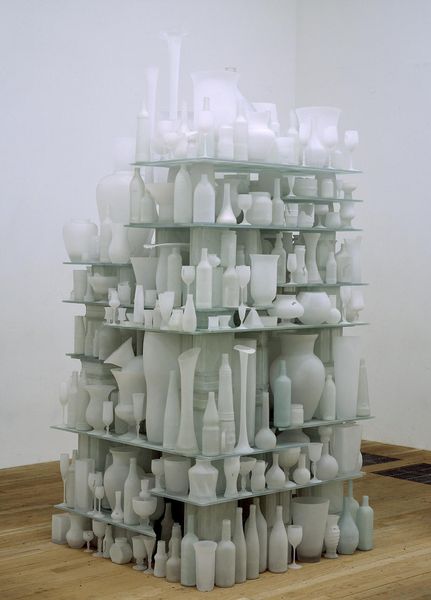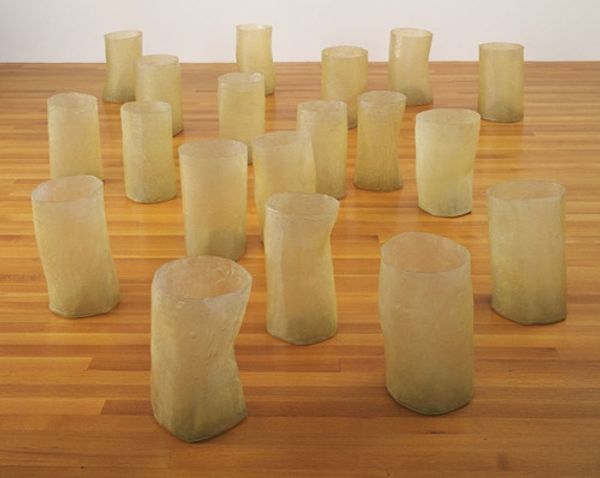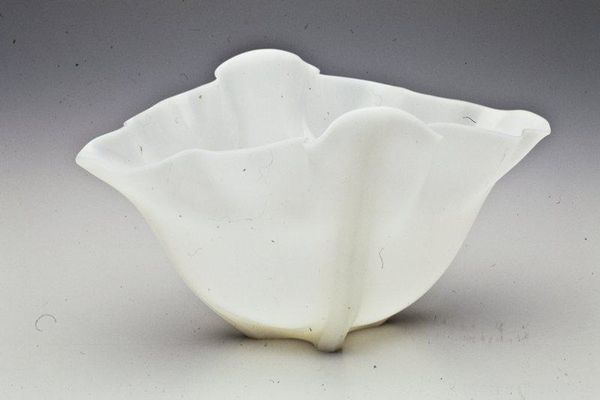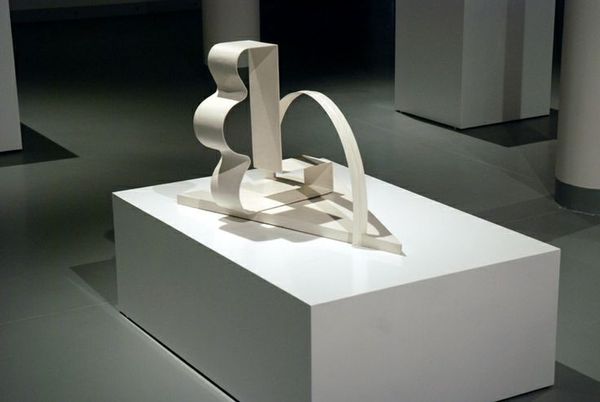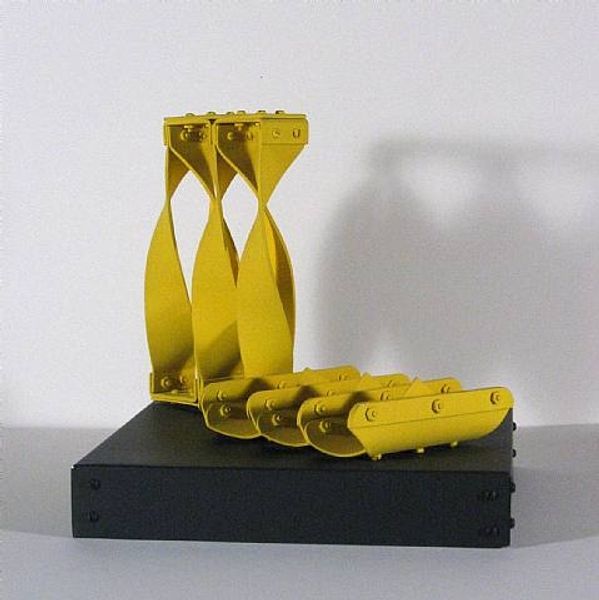
Dimensions: object: 248 x 505 x 295 mm, 19 kg
Copyright: © Bowness, Hepworth Estate | CC-BY-NC-ND 4.0 DEED, Photo: Tate
Curator: Dame Barbara Hepworth completed this work, "Group I (Concourse) February 4 1951," a mesmerizing assembly of forms crafted from marble. Editor: The stark white against the dark backdrop gives the impression of figures frozen in some sort of ritual, their smooth surfaces cool to the touch. Curator: I see it as a response to the post-war landscape, reflecting on community and the resilience of the human spirit amidst social upheaval, the concourse a symbol of transition, change, and anonymity. Editor: The pierced openings in the sculptures allow light and shadow to interact, creating new shapes and adding to the complexity of the group dynamic, speaking to a psychological depth. Curator: Right, and Hepworth's decision to use marble nods to a classical tradition, yet the abstract forms disrupt conventional notions of representation, challenging the viewer to question the very nature of identity and form. Editor: The figures might be devoid of individualizing features, but their arrangement tells a silent story, a shared cultural memory. The forms are both ancient and utterly modern, suggesting time's passage. Curator: Ultimately, Hepworth's work invites us to consider the interplay between the individual and the collective, prompting reflection on our own place within broader historical and social narratives. Editor: Indeed, a fascinating composition that encourages the viewer to find their own meaning within the silent dialogue of these evocative forms.
Comments
tate 8 months ago
⋮
http://www.tate.org.uk/art/artworks/hepworth-group-i-concourse-february-4-1951-t02226
Join the conversation
Join millions of artists and users on Artera today and experience the ultimate creative platform.
tate 8 months ago
⋮
Hepworth said that this work was inspired by the interaction of people and architecture in the Piazza San Marco in Venice. Each form bears 'a specific and absolute position in relation to the others'. Her use of Serravazza marble, a quintessential classical material, is appropriate to such an Italianate source. The artist associated white marble with the Mediterranean sun. In fact, the base and the figures were all carved from a mantlepiece salvaged from her neighbour's house. Gallery label, August 2004
